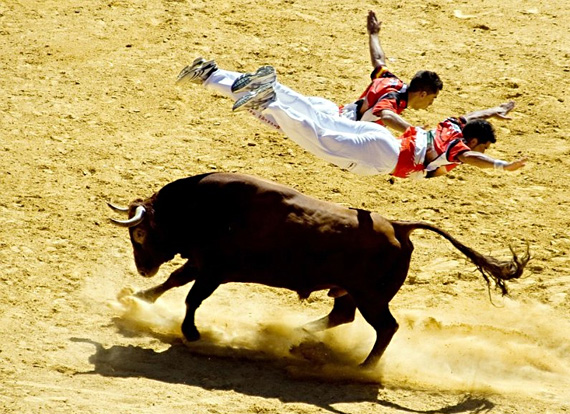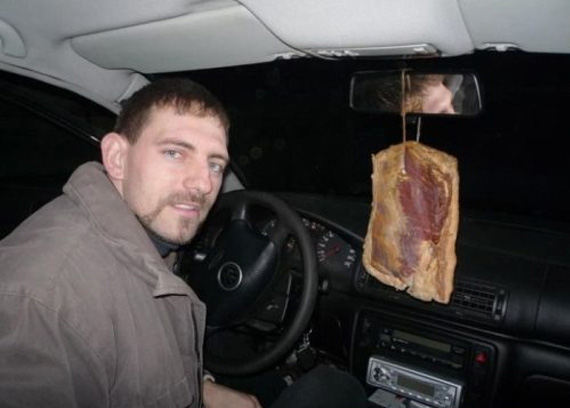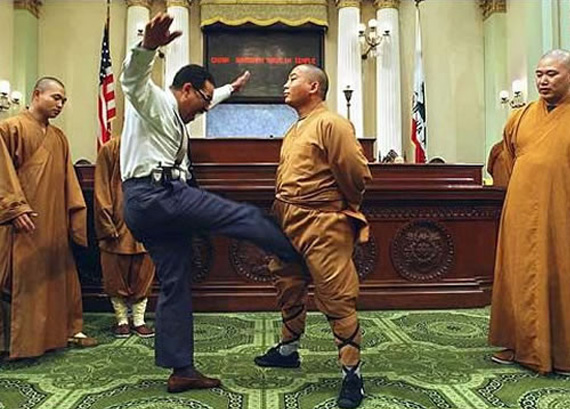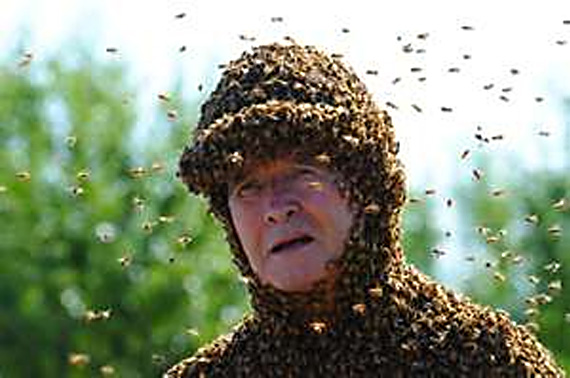Good 'n Sad
Make a list of good deeds you can do and force yourself to do them when you feel sad. This may be very difficult. But realize that exactly because it is difficult, it is more meritorious to do "good."
Thinking, "How good it is that I can do good even when I feel bad," will help you feel better. Especially, devote time to doing acts of kindness for those who could use your assistance. The more you think about others, the less time you will have for self-pity.
Love Yehuda Lave
A word to rioting Muslims from a commentator Pat Condell
Following on the heels of the High Holidays is Sukkot, a seven-day festival (8 days in the Diaspora) characterized by the outdoor Sukkah-huts that we sit in, and the "Four Species" of plants waved together each day. I will be off the computer for Monday and Tuesday, this week and also next week on Monday and Tuesday
Sukkot is a holiday of immense joy, where we express our complete trust in God, and celebrate our confidence in having received a "good judgment" for the coming year.
Throughout the week of Sukkot, we eat, sleep and socialize in a Sukkah, reminding us that:
- The Israelites lived in huts during the 40 years of wandering in the desert.
- God is our ultimate protection – just as He protected the Israelites in the desert with the Clouds of Glory (Exodus 13:21).
- Here are some of the traditions
The Four Species
On Sukkot, we are commanded to wave the Four Species, each noted for its special beauty:
- Esrog – the citron, a fragrant fruit with a thick, white rind. It is often picked from the tree while green, and then ripens to a bright yellow.
- Lulav – the palm branch, which is defined in beauty by having a straight shape and leaves tightly bound.
- Hadas – the myrtle branch, which has a beautiful plated pattern of three leaves coming out from the same point in the branch.
- Arava – the willow branch, which should have oblong leaves with a smooth edge.
We bind all the branches together: two willows on the left, one palm branch in the center, and three myrtles on the right. We then lift them together with the Esrog and shake it in all directions, as a symbol of God's mastery over all Creation.
The Four Species are waved each day (except for Shabbat) in the synagogue, during the recitation of the Hallel prayers of praise. Hallel is followed by Hoshanot, where everyone circles a Torah scroll held on the Bima.
It is a special tradition to "beautify" this mitzvah by getting the nicest species available. At the very least, there are specific requirements to be valid for the mitzvah. Since the details are many and technical, it is not recommended to search through the forest on your own for these species! (Particularly the Esrog, which can easily be confused with a lemon.) Purchase a complete set from a reliable distributor; your local Jewish bookstore should have a "Four Species Set" with a rabbinical seal certifying their validity.
After the holiday, some have the custom to recycle the esrog as a "spice box" for use at Havdalah. In this way, the esrog goes "from one mitzvah to another." Here's how to do it: Buy a package of whole (not ground) cloves. Use an awl to make the holes, then place the cloves painstakingly into each hole. (Yes, this is a great way to keep kids occupied for hours on end.) Keep the cloved esrog in a box, to preserve the beautiful scent of the pungent citrusy etsrog mixing with the sweet 'n spicy cloves. (A plastic container carries a higher risk of mildew.)
The Sukkah Hut
Building your own Sukkah is a great activity to share with your family and friends. The Sukkah must be at least 27x27 inches square. It can be built in a yard, apartment balcony, or even on the back of an elephant.
Your Sukkah needs at least three walls. The walls can be of any material, as long as they are sturdy enough to withstand a normal wind. The walls should be at least 38 inches high (96 cm), but not higher than 30 feet (9.6 m).
You don't have to build walls especially for the Sukkah; you can use the side of a building, or even a hedge of bushes. And if you can find an area that is already enclosed by 2 or 3 walls, then your job will be that much easier!
The roof material (S'chach) must be made from material that grows from the ground, i.e. branches or leaves (but not metal). If you're using unfinished boards, they should preferably not be wider than 5 cm. Also, the material must be presently detached from the ground. This means that nothing can be overhanging your Sukkah – not a tree, a gutter, air-conditioning unit, etc.
The roof must be sufficiently covered so that it gives more shade than sun during the daytime, yet it should be sufficiently open so that the stars are visible through the roof at night. The roof material can only be added after the requisite number of walls are in place.
Since the Sukkah is designated as your "home" for the next seven days, it is customary to decorate it nicely. Many people hang fruits and flowers from the ceiling, and tape posters of Jerusalem and other Jewish themes on the walls.
It is also traditional to "welcome" the seven great leaders of Israel (Abraham, Isaac, Jacob, Moshe, Aaron, Joseph and David) as guests (ushpizin) into one's Sukkah throughout the festival.
More Sukkot Traditions
It is a special mitzvah to rejoice on Sukkot. To this end, the intermediate days of Sukkot are marked by celebrations called Simchat Beit HaSho'eva, commemorating the water libations that were offered during Sukkot in the Holy Temple.
Sukkot is closely connected to "water," as it is the day of universal judgment with regard to the blessings of rain and irrigation for the coming year.
Sukkot is also a time of universal blessing for all peoples; symbolized by the 70 additional offerings brought in the Temple, corresponding to the 70 nations of the world.
The Book of Ecclesiastes, written by King Solomon, is read on Shabbat during Sukkot. The theme of Ecclesiastes is the folly of pursuing temporal pleasures of this world, as opposed to more eternal spiritual pursuits. Indeed, the Sukkah's flimsy construction reminds us that material possessions are transient.
The seventh day of Sukkot is called Hoshana Rabba, which features seven circuits around the bima, with the Four Species in hand. The procession culminates with the beating of the willow branch. Hoshana Rabba is known as the day of the final sealing of judgment which began on Rosh Hashana. On Hoshana Rabba, some have the custom to read the Book of Deuteronomy and stay up all night studying Torah.
Shmini Atzeret and Simchat Torah
Immediately following Sukkot is one more holiday called Shmini Atzeret, literally the "Eighth Day of Assembly." This is a time to cease the busy activity of the holiday season and simply savor the special relationship with the Almighty before heading out into the long winter season. It is a separate holiday from Sukkot, meaning that the She'hecheyanu blessing is recited, and the obligation to sit in the Sukkah does not apply.
On Shmini Atzeret, Yizkor is recited in the synagogue.
The next day is Simchat Torah, which celebrates the completion and new beginning of the annual Torah reading cycle. In the synagogue, all the Torah scrolls are taken out of the Ark, and the congregation dances "seven circuits" amidst great joy and song.
--
Visit my Blog: http://yehudalave.blogspot.com
or http://www.yehudalave.com/
--
Visit my Blog: http://yehudalave.blogspot.com
or http://www.yehudalave.com/






























